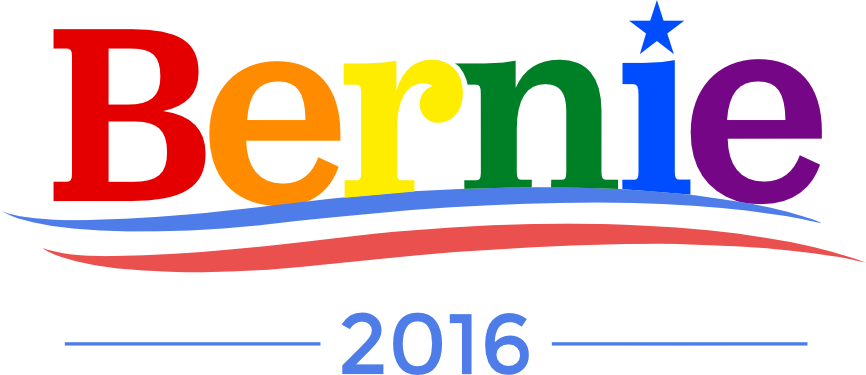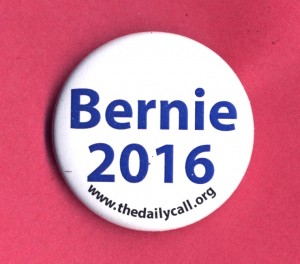
By Peter Dreier
Huffington Post (3/10/16)
Although his opponents seek to paint him as too far left, Bernie Sanders’ views are mainstream. At Wednesday’s Washington Post-Univision debate in Miami, for example, Hillary Clinton argued that Sanders’ ideas are not realistic and too expensive. “If it sounds too good to be true, it probably is,” Clinton said. In fact, the ideas that Sanders has injected into the campaign are hardly radical. Sanders is in sync with the majority of Americans on most key issues.
Here’s a brief run-down:
Big Business
- About three-quarters (74 percent) of Americans — including 84 percent of Democrats, 72 percent of independents, and 62 percent of Republicans — believe that corporations have too much influence on American life and politics today, according to a New York Times/CBS News poll. In contrast, only 37 percent think that labor unions exercise too much influence.
- The Pew Research Center discovered that 60 percent of Americans — including 75 percent of Democrats — believed that “the economic system in this country unfairly favors the wealthy.”
- Fifty-eight percent of Americans said they would support breaking up “big banks like Citigroup,” a key plank of Sanders’ platform and the goal of a bill that Sanders sponsored in the Senate.
- Seventy-three percent of Americans favor tougher rules for Wall Street financial companies, versus 17 percent who oppose stronger regulation.
- Sixty-four percent of Americans strongly or somewhat favor regulating greenhouse gas emissions from power plants, factories and cars and requiring utilities to generate more power from “clean” low-carbon sources.
Progressive Taxation
- More than three-quarters of Americans (79 percent) think that wealthy people don’t pay their fair share of taxes, while 82 percent believe that some corporations don’t pay their fair share of taxes.
- Sixty-eight percent of Americans favor raising taxes on people earning more than1 million per year, including 87 percent of Democrats, 65 percent of independents, and 53 percent of Republicans.
Inequality and Poverty
- A strong majority (66 percent) say that wealth should be more evenly divided and that it is a problem that should be addressed urgently.
- Ninety-two percent of Americans want a society with far less income disparity than currently exists in the United States. Americans prefer some inequality to perfect equality, according to the professors at the Harvard Business School and Duke University who conducted the survey. But when asked to pick an ideal level of income disparity, Americans prefer the more egalitarian level similar to the one in Sweden (although without identifying the country by name) to that in the U.S. What’s more, the rich and the poor, and Democrats and Republicans, are almost equally likely to choose the Swedish model. For example, 93.5 percent of Democrats and 90.2 percent of Republicans preferred the level of income distribution that exists in Sweden.
- Sixty-nine percent of Americans — including 90 percent of Democrats, 69 percent of independents, and 45 percent of Republicans — believe that the government should help reduce the gap between the rich and everyone else. Eighty-two percent of Americans — including 94 percent of Democrats, 83 percent of independents, and 64 percent of Republicans — think the government should help reduce poverty.
Money in Politics
- Eighty-four percent of Americans think that money has too much influence in politics. Slightly more Americans (85 percent) want an overhaul of our campaign finance system
- Seventy-eight percent of Americans think that campaign spending by outside groups not affiliated with candidates should be limited by law.
- A majority of Americans (54 percent) believe that money given to political candidates is not a form of free speech protected by the First Amendment. In other words, they disagree with the Supreme Court’s Citizens United ruling.
Minimum Wage and Workers’ Rights
- A recent poll by Hart Research Associates found that 75 percent of Americans (including 53 percent of Republicans) support an increase in the federal minimum wage to $12.50 by 2020. Sixty-three percent of Americans support an even greater increase in the minimum wage to $15 by 2020.
- Eighty percent of Americans favor requiring employers to offer paid leave to parents of new children and employees caring for sick family members. Even more (85 percent) favor requiring employers to offer paid leave to employees who are ill.
- A significant majority of Americans support the right of workers to unionize, despite several decades of corporate-sponsored anti-union propaganda. Eighty-two percent believe that factory and manufacturing workers should have the right to unionize. A vast majority support the right to unionize for transportation workers (74 percent), police and firefighters (72 percent), public school teachers (71 percent), workers in supermarkets and retail sales (68 percent), and fast food workers (62 percent).
Health Care and Social Security
- Over 50 percent of Americans (including one-quarter of Republicans and nearly 80 percent of Democrats) say they support a single-payer “Medicare for All” approach to health insurance, something Sanders has long advocated. Only 36 percent oppose the idea. 12 percent are neutral.
- Seventy-one percent Americans support a public option, which would give individuals the choice of buying healthcare through Medicare or private insurers. This was part of Obama’s original health care plan but the insurance industry lobby killed it, thanks to every Senate Republican and a handful of Senate Democrats, led by Senator Max Baucus of Montana.
- The Gallup poll found that 67 percent of Americans want to lift the income cap on Social Security to require higher-income workers to pay Social Security taxes on all of their wages. Most people still don’t realize that workers who earn more than $118,500 a year don’t contribute on their full income and that simply removing that tax loophole for high earners would close the lion’s share of Social Security’s modest long-term funding gap. Legislation introduced by Senator Sanders and Representative Peter DeFazio of Oregon would apply the same payroll tax already paid by more than nine out of 10 Americans to those with incomes over $250,000 a year. Census Bureau data shows that only about 5 percent (1 in 18) of workers would pay more if the cap were scrapped, and only the top 1.4 percent (one in 71 workers) would be affected if the tax were applied to earnings over $250,000.
Higher Education
- More than three-quarters (79 percent) of Americans think that education beyond high school is not affordable for everyone in the U.S. who needs it. Seventy-seven percent believe that higher education institutions should reduce tuition and fees, while 59 percent and 55 percent respectively agree that state governments and the federal government should provide more assistance. The average tuition bill for students at a public four-year college has increased by more than 250 percent over the past three decades. More than one-third (35 percent) of 2000-2014 college graduates report graduating with more than25,000 in undergraduate student loan debt, in inflation-adjusted dollars. The recently graduated college class of 2015 has an average debt burden of $35,051 per student, the highest ever. Sanders introduced legislation to make four-year public colleges and universities tuition-free, paid for through a tax on Wall Street transactions.
Same-Sex Marriage
- Today, 60 percent of Americans believe it should be legal for gay and lesbian couples to marry, according to the Gallup poll, a figure that is likely to increase in the coming years, especially after the Supreme Court ruled that same-sex marriage is legal. But in 1996, only 27 percent felt that way. That year, then-Congressman Sanders was one of only 67 House members to vote against the Defense of Marriage Act, which barred federal recognition of gay marriages.





